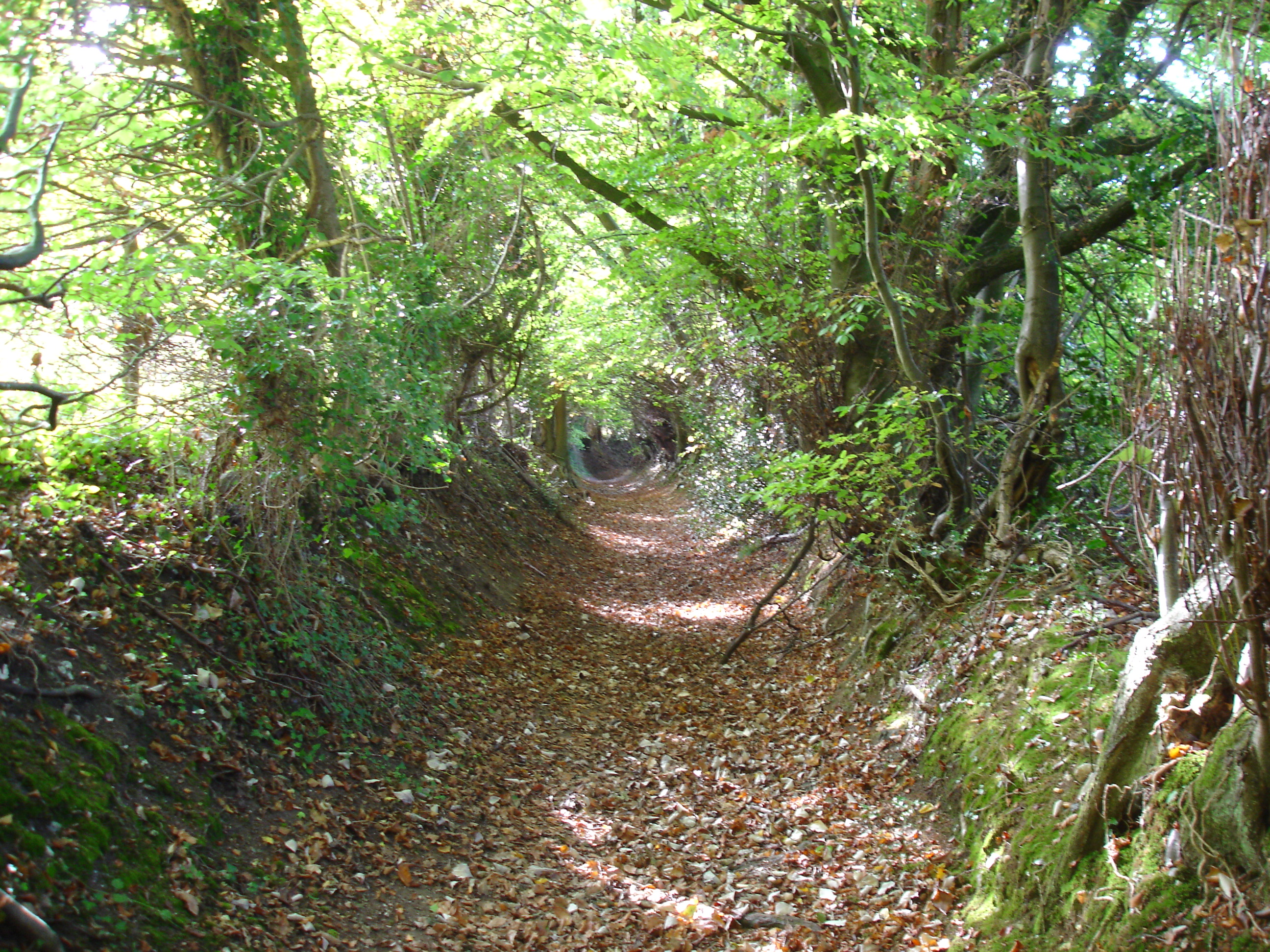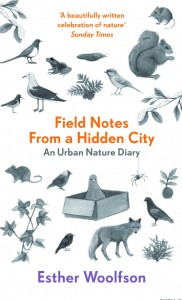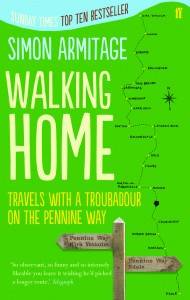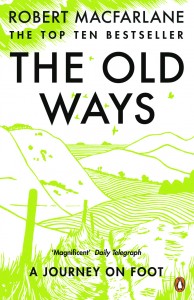It seems barely a week goes by without the announcement of another literary prize shortlist, but The Wainwright Prize for UK Nature & Travel Writing – new for this year – is a really strong selection. First of all, here’s the list:
Under Another Sky, by Charlotte Higgins
Badgerlands, by Patrick Barkham
Field Notes from a Hidden City, by Esther Woolfson
Walking Home, by Simon Armitage
The Green Road Into Trees: A Walk Through England, by Hugh Thomson
The Old Ways, by Robert Macfarlane
Last November, I had to compile a list of nature books of the year for a feature for Landscape magazine which, sadly, was never published after a redesign/refocus was completely scrapped. The first three Wainwright-nominated books all featured: Armitage, Thomson and Macfarlane didn’t appear in my list for the simple reason that they were first published in mid 2012.
Which is the only quibble I have with the Wainwright: allowing paperback publication dates makes for a really competitive list but it’s meant to reflect 2013’s best nature books. So it overlooks Turned Out Nice Again by Richard Mabey and Feral by George Monbiot. Confusingly, Macfarlane had a newer book out last year, Holloway, which I reviewed for The Observer. Four Fields by Tim Dee is also a stand-out from 2013, although perhaps it may not have met the criteria given that three of the four fields aren’t in the UK.
Anyway, having read five of the six books on the list, I feel qualified enough to pass judgement. First of all, the published reviews:
Field Notes From A Hidden City: An Urban Nature Diary by Esther Woolfson
Published in Metro, Februrary 2013
Woolfson isn’t the first writer to encourage city dwellers trapped by concrete and stone to look a little closer at the hidden signs of nature all around us – in recent years Robert Macfarlane and Luke Jennings have both revelled in the local. But Woolfson often takes matters a little further: into her own house. Her first book, Corvus, was a lovely memoir of keeping members of the crow family as pets, and here she chronicles a year spent observing rats and squirrels, foxes and spiders in Aberdeen.
She doesn’t just marvel in the active, obvious animal life she sees, but the weather, the changes of the seasons and moods and, in virtuosic but always accessible passages, the chilling effect of snow. Following her journey through the year, it’s impossible not to put the book down quickly and look out the window for the kinds of changes she talks about, and only very rarely does the conceit let her down; December 23rd’s entry, “The family arrive home” might as well be a banal tweet. Otherwise, this is a reflective book which isn’t quite as gentle as it might seem – the slightly anxious tone underlining the fact that if we don’t appreciate the value of nature under our noses, we may irrevocably change it.
Walking Home: Travels With A Troubadour On The Pennine Way by Simon Armitage
Published in Metro, July 2012
Two years ago, Yorkshire poet Simon Armitage decided to walk the 256-mile Pennine Way from north to south. He would therefore be, in effect, walking home. The task was made more interesting by his decision to try and do so without any cash: he would perform poetry readings at each stop on the walk, in village halls, in pubs, even in living rooms, pass a sock around for donations, and hope that his fans along the way would put him up.
Armitage isn’t quite the classic troubadour – the notes at the end of this hugely enjoyable account of his time in the hills acknowledge the logistics and prior organisation that was required to make the undertaking work. But the sheer quality of writing makes any sense that this journey was slightly convoluted completely irrelevant.
As he conquers peaks and tramps through valleys, Armitage reveals himself as a lyrical but grounded nature writer, noting roaring streams bursting and bubbling with brown water “the colour of mild ale”. But what makes Walking Home so likeable is that he’s a fantastic chronicler of how the hills made him feel. He is full of doubts and fears (of getting lost and aggressive cattle), attacked by monotony and melancholy, yet driven to tears by the wind or the beauty (he never really knows which).
Crucially, spending time with Armitage on his journey is great fun, too: he understands the faintly “midlife-crisis” atmosphere surrounding the whole enterprise, but also its potential for contemplation and inspiration. He succeeds every step of the way.
The Old Ways by Robert Macfarlane
Published in Metro, June 2012
Robert Macfarlane calls The Old Ways the third book in his loose trilogy about “landscape and the human heart”. It’s been quite a journey: Mountains Of The Mind investigated our fascination with peaks and ranges, while The Wild Places asked us to think more deeply about where we find natural wonder. The Old Ways finds Macfarlane setting off on old tracks and paths trodden for centuries, gathering together a network of memories, chance meetings, history and nature.
The academic in Macfarlane is never far away from his writing – the literature of poet Edward Thomas, the great walker-writer William Wordsworth and artist Eric Ravilious is keenly observed and explained. But it’s when he returns to his own world that Macfarlane’s writing soars. In one memorable chapter, Macfarlane sits on a chalk summit, sharing the scene with other walkers. The natural inclination would be to describe the view alone. But here, woodpeckers yapp, lichen glimmers on trees, a roe deer’s eye gleams “gold with the last light” and Macfarlane’s feet are “puffy as rising dough”. The human, the animal, the natural and the emotional all come together in a few dramatic sentences. Read this wonderful book, and it’s impossible to take an unremarkable walk ever again.
The rest
Barkham’s Badgerlands and Higgins’ Under Another Sky are just as enjoyable: I’m predisposed to like Barkham as he’s from Norfolk like me, but he really does get to the heart of the badger cull debate, visiting farmers who have been affected by the spread of bovine TB, as well as those who lovingly fight their battles for them. It’s when he goes out into the wild to try and see badgers for himself that this book really soars however – not least because he struggles to see them at all.
Higgins’ Under Another Sky, meanwhile, comes with the subtitle Travels In Roman Britain. In trying to find the remaining parts of that empire in the UK, she achieves something more than just history or travelogue. Under Another Sky is more lyrical than that, a discussion of not just what Roman Britain means to us now, but how our view of it has been changed and shaped, and how it is slipping away from our grasp.
All of which leaves The Green Road Into Trees: A Walk Through England by Hugh Thomson – which I haven’t read. Perhaps I should, as I believe it ends in Norfolk. Anyway, this was another book first published in 2012, and bears more than a little resemblance to Macfarlane’s Old Ways, although in less scholarly fashion, I believe.
So who should win? It’s an undeniably competitive shortlist – Macfarlane’s has the best writing, Armitage is the most accessible and plain entertaining. But because it was actually published last year, I hope Esther Woolfson wins for Field Notes From A Hidden City. It was the nature book that would have been Landscape magazine’s book of the year, had they ever published the piece…
The Wainwright Prize is announced on May 8. www.wainwrightprize.com





